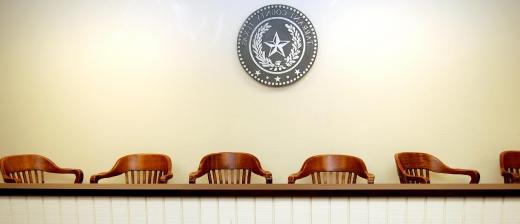At WiseGEEK, we're committed to delivering accurate, trustworthy information. Our expert-authored content is rigorously fact-checked and sourced from credible authorities. Discover how we uphold the highest standards in providing you with reliable knowledge.
What Are the Best Tips for Mock Trial Cases?
Preparation symbolizes a key element in mock trial cases from the perspective of both sides of the argument. Participants should practice before the date of the actual event and note weaknesses that need work. Facts of the mock trial cases should be scrutinized to develop strategies for questioning witnesses and preparing opening arguments. Learning the rules of evidence, courtroom protocol, and effective questioning techniques are all important.
Discussion of major points can be held ahead of time to prepare for evidence that might be introduced by the opposing sides of mock trial cases. This might lead to discovery of weak spots in affidavits or prior written statements of potential witnesses. Studying mock trial cases from both sides enables participants to anticipate witness testimony and strategies of opponents.

Opening and closing statements in mock trials become more effective if they are memorized and not read out loud. Using clear language without legalese during these two important periods of the trial is generally advised. Closing arguments should not be composed too early, or they might miss main points raised during mock trial cases. A closing argument should sum up evidence presented during the proceeding and highlight evidence that supports a position.

Practice sessions for mock trials might include instructions on flexibility. This helps participants think quickly when they cannot anticipate how a judge might rule on an objection, or when testimony comes from the opposition. A trial run also allows preparation for dealing with conflicting evidence or testimony ahead of time.
Mock trial cases typically provide valuable information for attorneys preparing for actual trials. In these instances, lawyers do not dwell on winning or losing during mock trial cases, but focus on what they can learn from jurors. When lawyers thoroughly interview jurors after the case, a wealth of information might surface that helps them prepare their case.

The credibility of witnesses suggests areas where a lawyer might conduct coaching. Jurors should be asked if any witness’s testimony swayed their decision, and what weakness each witness showed. Some attorneys videotape jury deliberations in mock trial cases to illustrate how jurors perceive witnesses. This information might be useful to prepare potential witnesses for greater credibility during actual trial.
Attorneys also glean valuable personal information from questioning jurors after mock trials. Jurors might assess how the lawyers performed and point out habits or demeanors they found offensive. The lawyer might ask what he or she could have done differently to influence the jury’s decision. Input from jurors enables attorneys to determine strengths and weaknesses in the case.
AS FEATURED ON:
AS FEATURED ON:













Discussion Comments
The one court mock trial I watched from the galley seemed very artificial and scripted. The witnesses provided useful facts and the lawyers made decent arguments, but it felt like amateur theater. Sometimes the attorney would get combative with a witness and I could tell they were trying to keep it family-friendly. I would think in a real trial that some witnesses might lose their composure during questioning and blurt out some bad language or start crying or something.
I would say that lawyers should include more real life reactions in their mock trial scripts. Some witnesses may not want to reveal critical facts right away, or others may decide to lie on the stand. I think the mock trial I saw would have been more convincing if the participants did more improvising and paid less attention to the script.
When I participated as a juror in a mock trial, one thing I paid attention to was the introduction of each witness. Most of them seemed to match the type of person described in those introductions. A witness described as a physics professor, for example, looked exactly like what I thought a physics professor would would like. He had graying hair, wore a nice but inexpensive suit, and spoke like someone who was used to giving lectures every day. In other words, the introduction helped give him credibility.
The defense attorney introduced another witness as a graduate of Auburn University in 1957 and a lifelong resident of Alabama. If he'd had actually graduated from Auburn in 1957, he should have been at least 20 years older than he appeared. He also spoke with a Midwestern or null accent, but a lifelong resident of Alabama would have a noticeable Southern drawl. I couldn't believe his testimony, even if he was supposed to be the best expert witness for their side. I suggest that lawyers preparing for a mock trial make sure their witnesses match their introductions.
Post your comments